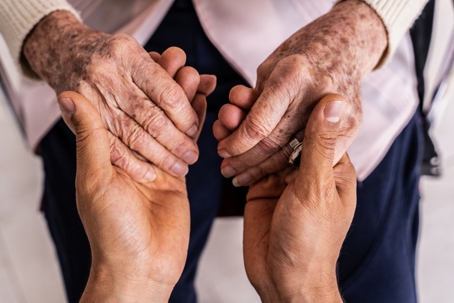When you entrust a nursing home to care for a loved one, you expect them to receive the dignity, respect, and attention they deserve. Yet, abuse and neglect remain unsettlingly common in elder care facilities, often hidden behind closed doors. The key to uncovering these problems often lies in one simple act: visiting.
Family visits are more than just quality time with your loved one; they’re an opportunity to keep an eye on their well-being. Your presence can reveal subtle signs of mistreatment, help your loved one feel supported, and hold nursing home staff accountable.
Here’s how regular family visits can help expose abuse or neglect, the warning signs to watch for, and the steps to take if you suspect your loved one isn’t receiving the care they need.
Why Family Visits Matter
Even the best-intentioned nursing homes can face staffing shortages or mismanagement, leaving residents at risk. Regular visits from family members act as an extra layer of oversight, helping to spot issues before they spiral into something worse.
Here are a few reasons why your visits make a difference:
- Staff Accountability: When staff notice frequent visitors, they’re likelier to stay vigilant about their actions, knowing they’re being observed.
- Mental and Emotional Well-Being: Regular family contact provides residents with a psychological boost, helping them feel cared for and loved. This can reduce their vulnerability to emotional manipulation or neglect.
- Identifying Red Flags: Changes in your loved one’s physical condition, behavior, or environment are easier to notice when you’re consistently present.
Signs of Nursing Home Abuse or Neglect
Nursing home abuse doesn’t always leave obvious marks, which is why knowing what to look for during visits is crucial. Below are some common signs to watch for, categorized into different types of neglect or abuse.
1. Physical Indicators
Physical abuse or neglect often shows up as injuries or unaddressed medical needs.
- Frequent or unexplained bruises, cuts, or burns.
- Pressure ulcers (bed sores), particularly on immobile residents.
- Sudden weight loss or signs of dehydration, like dry lips or cracked skin.
- Overmedication or visible signs of sedation, such as extreme drowsiness.
2. Behavioral Changes
Changes in mood or personality can signal emotional or physical abuse.
- Withdrawal, depression, or fearfulness.
- Outbursts of anger, anxiety, or frustration.
- Reluctance to communicate, especially around staff members.
- Sudden changes in trust levels with caregivers or other residents.
3. Environmental Red Flags
The state of your loved one’s surroundings can reveal a lot about the care they’re receiving.
- Untidy or unclean living spaces, including dirty sheets or clothing.
- Persistent odors of urine or feces, signaling hygiene neglect.
- Broken equipment, unsafe furniture, or cluttered walkways that pose safety risks.
- Meals that look unappetizing or don't meet your loved one’s dietary needs.
How to Use Visits to Spot Problems
Every visit is an opportunity to observe your loved one’s care and environment. Here are some tips for effective monitoring during your time together:
1. Talk to Your Loved One
Engage them in open conversation about their daily life. Ask about the food, activities, interactions with staff, and anything else they wish to share. If they seem hesitant to speak up, gently reassure them that they can trust you with their concerns.
2. Stay Observant
Sometimes the most telling signs are nonverbal. Look for expressions of discomfort or body language suggesting unease. Take note if your loved one flinches at a caregiver’s touch or seems nervous as staff enter the room.
3. Vary Your Visiting Schedule
Unannounced visits are an effective way to catch a nursing home off guard. Try showing up at different times of the day, including during meals or after hours, to get an honest picture of how care is delivered at all times.
4. Engage with Staff
Building rapport with caregivers and managers can provide insight into your loved one’s care routine. While most staff have good intentions, conversations can also expose inconsistencies or raise concerns about understaffing.
5. Check Documentation
Verify that care plans, medication schedules, and therapy sessions are being followed. Don’t hesitate to ask to review records, especially if your loved one has chronic health conditions or specific care needs.
What to Do If You Suspect Abuse or Neglect
If your visits uncover signs of abuse, it’s critical to act quickly to protect your loved one. Here are the steps to take if you suspect something is wrong:
1. Document Your Findings
Record everything you’ve observed, including dates, times, and specific incidents. Take photographs of injuries or unsafe conditions and keep any correspondence with the nursing home for your records.
2. Raise Concerns with Management
Report your suspicions to the nursing home administrator. Demand clear explanations and corrective actions. Be firm but professional, and follow up to ensure your concerns aren’t ignored.
3. File a Complaint
If the situation doesn’t improve, file a complaint with your state’s ombudsman or regulatory agency overseeing elder care facilities. Their investigations can lead to inspections, fines, or even closures of negligent homes.
4. Consult an Attorney
Consider seeking legal advice to protect your loved one and hold the facility accountable. An experienced elder care attorney can help you pursue compensation for damages and push for systemic improvements in care.
Nursing Home Abuse, Neglect, & Injury Attorneys
In conclusion, ensuring your loved one's safety and dignity in a nursing home setting in Hattiesburg, MS requires vigilance, open communication, and a strong understanding of available legal resources. If you suspect any form of abuse or just need informed guidance, do not hesitate to reach out to McHugh Fuller Law Group. Our team specializes in advocating for the rights of nursing home residents and their families, providing the support needed to navigate such challenging circumstances. Contact us today at (601) 255-0240 to discuss your concerns and explore how we can assist in safeguarding your loved one's well-being.


